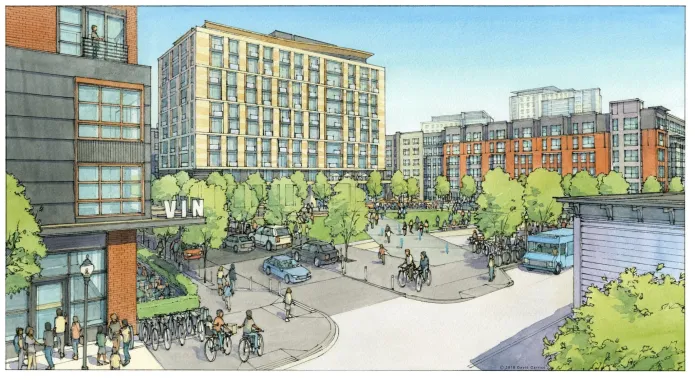Course Info
5 video lessons (50 Mins)
Published
2024-
4.53
Preview Course
Browse Course Chapters
-
1.Setting the Stage
13 mins
-
2.The Challenge is the Opportunity
8 mins
-
3.Full Stop: Equity and Inclusion
7 mins
-
4.Case Studies: Innovation Ecosystems
16 mins
-
5.Urban Design Thresholds
4 mins
What You Will Learn
• The extent to which innovation industries will lead economic growth — and the importance of creating innovation ecosystems to enhance regional economic competitiveness and opportunity over the next two decades • How growing innovation industry employment is replacing traditional service industry office jobs in a growing number of urban centers • How innovation industries are adapting to hybrid work and why proximity and placemaking — starting with housing-based mixed-use development that meets critical density thresholds and supports a rich array of local amenities — is increasingly critical as these industries adapt to post-pandemic realities • Specific public policies — including effective use of public/private partnership and other incentives — and urban design strategies to unlock the ability to transform a variety of places—from existing downtowns to outmoded malls, office parks, tech parks, and industrial parks into successful innovation ecosystems • A variety of innovation ecosystem case studies, in a variety of real estate markets and with or without participation for a local research university • Discuss strategies for making equity and inclusive economic development central to growing knowledge and innovation economies to ensure that their benefits are shared by everyone.Course Description
By 2040, the knowledge economy will drive economic growth for virtually every region across North America. The challenge? Innovation companies, from large companies like Google to thousands of small startups, as well as the technology, life sciences, smart manufacturing, and other knowledge industries are increasingly looking to locate where the talent wants to live and work.
To ensure they make the cut, cities can undertake placemaking strategies that create strong innovation ecosystems. These community-rich places — where a diverse mix of talent live, work, shop, enjoy culture, and socialize — can attract and retain talent and nurture creative collisions that knowledge and innovation companies need.
This course will cover the trends behind this growing need and explain the public policies that will lay the groundwork for building successful innovation ecosystems.
Learn these skills
- Economic Development
- Regional Planning
- Technology
- Urban Design
- Walkability
AICP CM
This course is approved for .75 AICP CM credit.



























